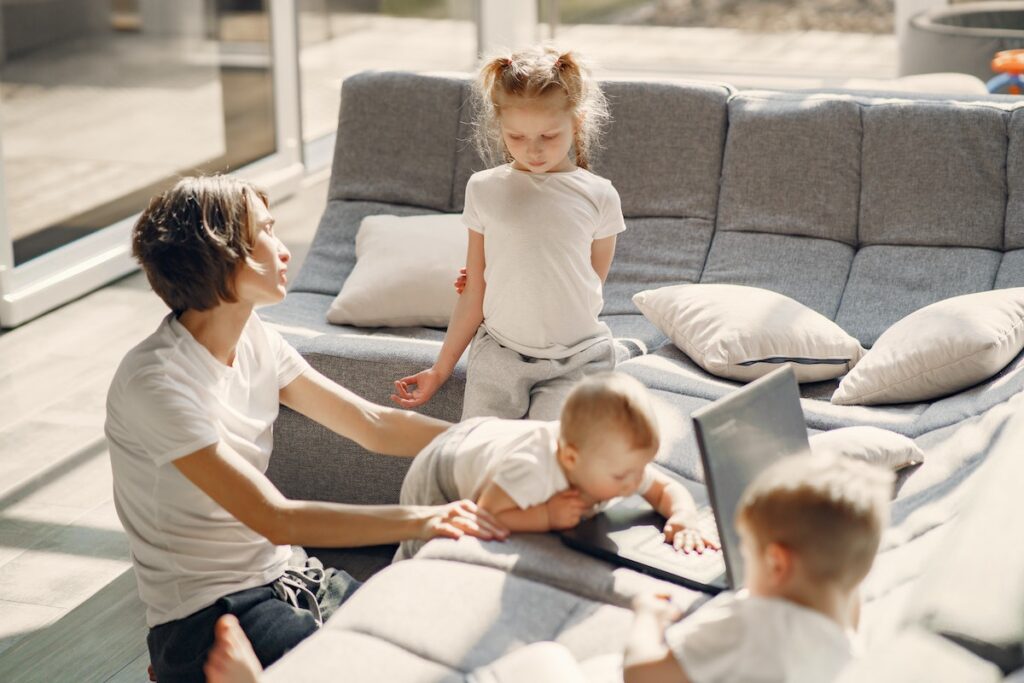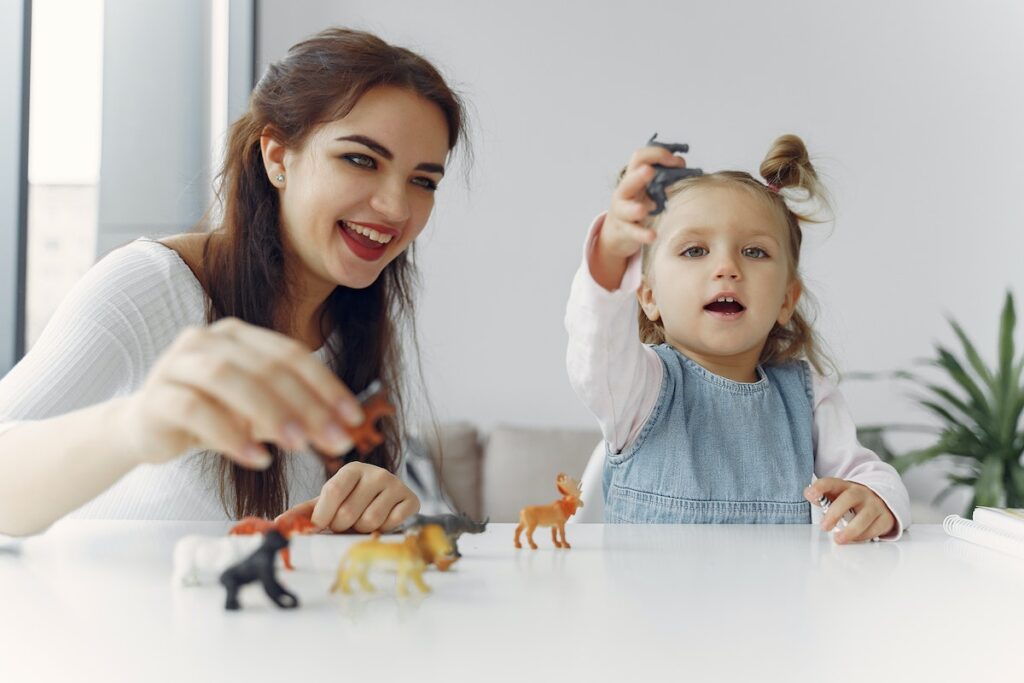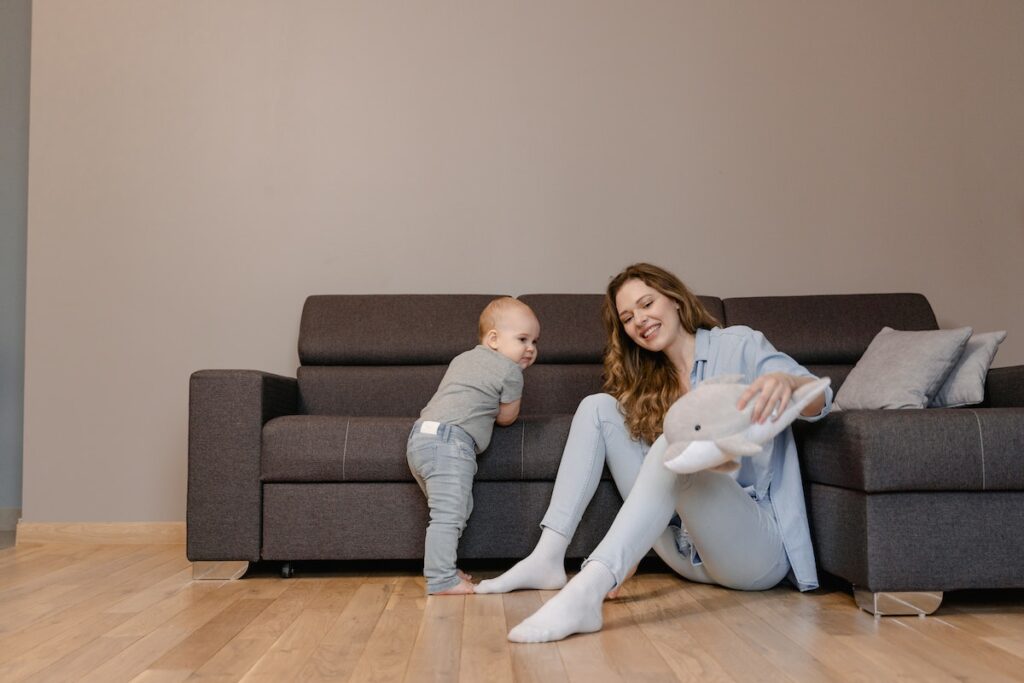Do you ever feel overwhelmed by modern-day parenting culture? The constant flurry of new products, gadgets, toys – anything that promises ‘success’ can often feel exhausting. That’s why minimalist parenting is popular among those looking for something different. This approach prioritizes simplicity over excess while focusing on quality experiences that promote your child’s well-being.
What is minimalist parenting? Minimalist parents focus on creating family environments where their kids can flourish without feeling weighed down by excess’ stuff.’ Questioning societal norms around what it means to be successful in raising children brings greater autonomy found through self-sufficient growth.
But what is the origin of minimalist parenting? As we are constantly inundated with new things at every turn, media blitzes its most recent release taking time seriously to consider which adds value instead falling prey to trendy advertising becomes increasingly more difficult. However, the minimalist philosophy responds to consumer culture as families choose what is most important to them, leading to a balance that brings child-centered living.
This blog post elucidates the core principles of minimalist parenting with practical examples that will guide parents in transitioning towards this style of parenting successfully. Additionally, we provide tips and insights on encouraging a minimalist mindset in children that can positively impact family life and provide notable benefits such as reducing stress and fostering creativity.
Core Principles of Minimalist Parenting
Minimalist parenting adheres to certain fundamental principles that are cornerstones for those seeking a simpler lifestyle when raising their children.
- Quality Rules Over Quantity
In minimalist parenting philosophy emphasizing quality over quantity is fundamental; instead of stocking up on endless toys or gadgets kids might not even use much anyway – minimalist parents select meaningful possessions that last long but align with personal preferences too!
This strategy also extends beyond physical items towards experiences or relationships one has with ambition upheld by strong value foundations. When prioritizing high-quality products for kids’ daily use, signifies fostering environments promoting mindfulness while imparting boundless creativity leading to appreciating self-sufficiency, eventually contributing towards sustainable living.
- Simple Living With Intentional Choices
Minimalist parenting advocates intentional living characterized by embracing simplicity in daily routines paired with physical decluttering space, effectively reducing excessive noise created by modern lifestyle distractions, thus creating a calming environment essential for children’s overall well-being.

Establishing boundaries and ditching over-scheduling practices is also essential, providing ample time for kids to explore interests while developing creativity and thriving at their own pace via unstructured playtime, leading to healthy habits beyond time management.
- Focusing on meaningful experiences and relationships
At the heart of minimalist parenting lies a focus on meaningful experiences and relationships with loved ones. Rather than prioritizing material possessions, minimalist parents value spending quality time with their children and cultivating solid bonds. To do so. They;
- create rituals and traditions that hold sentimental value.
- Engage in activities that encourage connection and learning. And
- promote open and honest communication within the family.
By prioritizing experiences over things, parents nurture their children’s sense of purpose, empathy, and emotional intelligence.
- Letting go of societal pressures and expectations
In addition to emphasizing meaningful relationships with loved ones. Minimalist parenting teaches parents to let go of societal pressures that often lead to comparison and feelings of inadequacy.
By embracing a minimalist mindset, parents can redefine success on their terms and focus on what truly matters to their family by allowing them to make decisions that line up with their values rather than conforming to external expectations around parenting styles, educational choices, or material wealth.
The Benefits of Minimalist Parenting
Adopting a minimalist approach to parenting offers several advantages.
- Primarily it reduces clutter and promotes a calm and organized living space for parents and children.
- Prioritizing quality over quantity encourages children to value their possessions and stimulates creativity and resourcefulness, which is crucial for personal growth. Minimalist parenting values valuable experiences and relationships over material possessions.
- Parents can create stronger bonds with their children by spending quality time together. Moreover, this approach aids in developing essential life skills like problem-solving, self-reliance, and decision-making.
Minimalist Parenting in Practice

What are some practical examples of minimalist parenting in practice? To put these principles into practice.
- Streamlining material possessions
Minimalist parents encourage their children to participate by teaching them the value of letting go of possessions that no longer serve them or make them happy while making conscious choices about what they truly need or want.
It involves streamlining material possessions such as toys, clothes, and other items to create a more manageable environment. One practical example of minimalist parenting is:
- limiting the number of toys your child has. Instead of buying a bunch of toys that your child may only play with once or twice, consider buying a few high-quality toys that are versatile and can be used in multiple ways.
- reducing the amount of screen time your child has. Instead of allowing your child to watch TV or play video games for hours on end, set a specific time limit and encourage them to engage in other activities like playing outside or reading a book.
These examples demonstrate how minimalist parenting can help simplify your child’s life and encourage them to focus on meaningful experiences rather than material possessions.
Furthermore, reducing clutter in the playroom can positively affect kids’ development, sparking creativity and concentration as they streamline their toy collection. When children take responsibility for their belongings, this attitude spills over into appreciating environmental sustainability.
- Simpler Routines
Parents who adopt minimalist parenting principles believe that developing more straightforward daily routines benefits their children immensely. While practicing simplicity enables them to have predictable yet flexible schedules & provides less stressful days.
Encouraging independence leads to practicing Basic Life Skills and participating in The House Chores, which helps kids become responsible beings.
- Balancing Activities/Commitments
Minimalist parenting encourages parents to create a balance between different activities or commitments that their kids make. Filling up their child’s busy schedule without considering their needs or interests leads to burnout.
Parents should choose opportunities that align with their child’s passions and allow for unstructured playtime and downtime that offers creativity & exploration.
- Nurturing Minimalist Mindset
Encouraging values, experiences, and relationships that prioritize meaningfulness over quantity is essential to adopting a minimalist mindset in children and can reach out to positively influence the family.

Children who practice gratitude and decision-making skills based on values genuinely take responsibility for their choices & tend to be more content with their outcomes.
Conclusion
Minimalist parenting entails prioritizing simplicity while promoting quality over quantity by streamlining material possessions- simplifying daily routines- balancing activities/commitments- nurturing a “less is more” like mindset within your child’s upbringing.
By experimenting & exploring these principles at home, one can effectively create an environment fostering growth within each member. Embracing mindful consumption practices will ensure long-term benefits for both you and your offspring’s spiritual wholeness, ultimately contributing positively to society.
Can we support you on your minimalist parenting journey? Subscribe to our newsletter where you will get exclusive tips and more on parenting!












